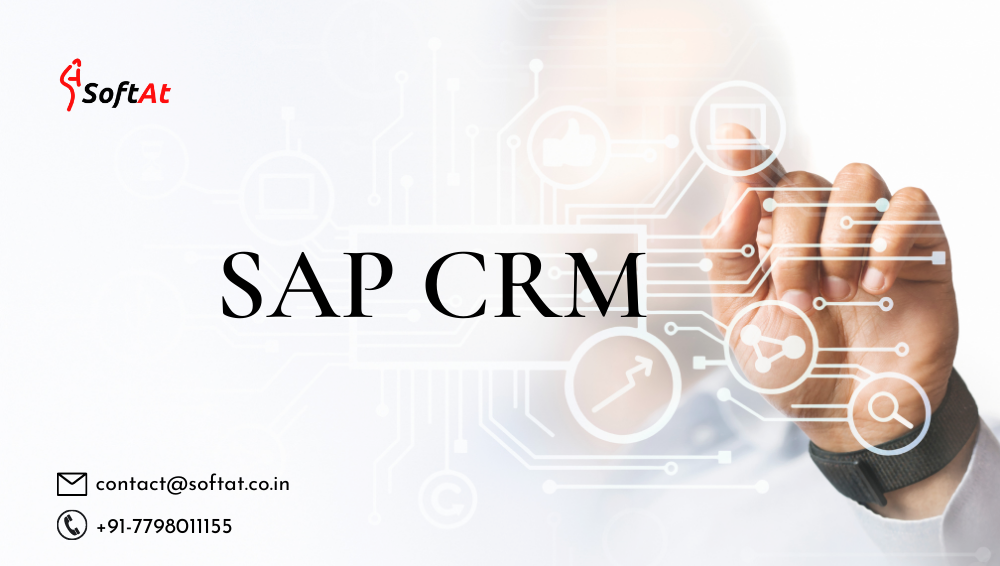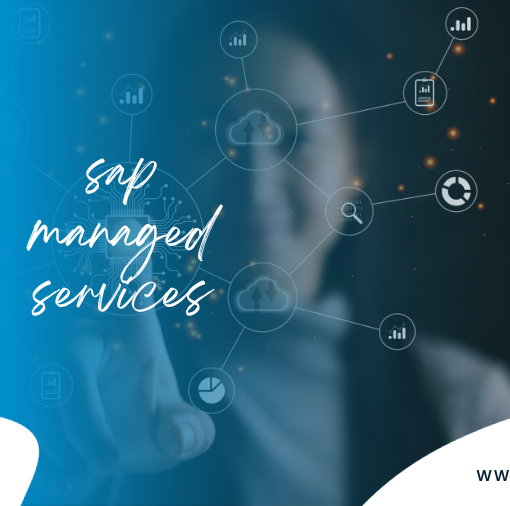What is SAP CRM module?
SAP CRM is the tool provided by SAP and is used in a variety of business processes. It is a component of the SAP business suite that may be used to develop customized business processes, interface with other SAP and non-SAP systems, and aid in the implementation of CRM strategies.
SAP CRM can assist a company in maintaining contact with its customers. This way, the company may meet client expectations by providing the services and products that it requires. It also aids in the achievements of a “single face to the customer,” which implies that the client receives consistent and up-to-date information regardless of the channel via which they would be contacting your firm.
Does your business need a CRM?
What is CRM?
CRM stands for “Customer Relationship Management,” and it refers to a set of approaches and tools that assist organizations and businesses in managing customer interactions in a systematic manner. Customer Relationship Management (CRM) is a marketing technique that focuses on improving customer interactions. It also aids in the comprehension of your consumer’s needs and requirements.
In today’s extremely competitive business environment, leading organizations are placing a greater emphasis on their most valuable assets – their customers. As a result, businesses require a user-friendly, easily adaptable, fully integrated, and flexibly implementable software solution to serve their consumers.
Key Features of CRM:
- Contact and Account Management: CRM allows businesses to store and manage customer information, including contact details, purchase history, communication logs, and preferences.
- Sales and Opportunity Management: CRM tracks sales pipelines, manages leads, and provides real-time visibility into sales activities and revenue forecasts.
- Marketing Automation: CRM supports campaign management, lead nurturing, email marketing, and marketing analytics to optimize marketing efforts and generate quality leads.
- Customer Service and Support: CRM offers ticketing systems, knowledge bases, self-service portals, and case management capabilities to streamline customer support operations.
- Reporting and Analytics: CRM provides advanced reporting and analytics features to track key metrics, monitor performance, and gain insights for data-driven decision-making.
SAP CRM Sales
SAP CRM was created to handle client contact at any time and from any location. Telesales, Enterprise sales, E-selling, and Field sales are among the SAP CRM Sales deployment options available to businesses.
Its Sales enable your company’s sales force to perform more efficiently and effectively. It delivers knowledge that leads to action and keeps the emphasis on constructive activities. As a result, Sales assists your company’s sales force in securing customers and then developing and maintaining positive relationships with them.

Sales also include features like sales forecasting and analytics, which can assist your company to collect historical and predictive data. It contains territory and account management, both of which can be utilized to improve the efficiency of your sales team.
Sales also comprise systems for managing opportunities and pipelines, which allow maximum insight into potential sales, as well as sales processes and methodologies, which can lead to the standardization of company-specific best practices. It also enables smooth order-to-cash procedures, allowing your sales team to properly manage customer expectations.
SAP CRM Services
- All aspects of the service order processing enabled by SAP CRM service, from replying to the customer’s initial inquiry through confirmation and billing of the service delivered to the client, are covered.
- The SAP CRM solution also allows your company to create and process quotations, as well as create service orders and assign them to field service representatives.

SAP CRM Channels
Its Channels offer implementations for a variety of business channels, including the Internet, telephony, field sales, and partners, allowing you to optimize your client interactions. SAP CRM provides your employees with an easy and user-friendly interface to carry out their regular tasks across all channels supported.
Customers can use SAP CRM to implement a variety of customer-specific and industry-specific activities. Customers can use SAP CRM’s various engagement channels to interact with these implementations:

Back-Office: This is role-based web access. It is the one point of entry for all related tasks in service, sales, and marketing. Employees are assigned to a business role that includes all applicable systems. As a result, an employee can consolidate all essential systems into a single user interface.
Field Service or Offline-User: CRM provides field service agents with a number of field applications that they can access from anywhere at any time. These apps are made for mobile phones and tablets.
Interaction Center: SAP CRM provides customer service representatives with a user interface that is fully integrated with various communication channels such as phone and email. It also has a number of tools that the employee may use to take notes or work on the transaction.
WebChannel Management: CRM provides a platform for e-service, e-commerce, and e-marketing. These platforms are designed to provide personalized, dependable, and convenient services to target clients. Which is 24 hours a day, seven days a week, 365 days a year. This allows end-users to access and research data, and then purchase services. Also, goods are based on their needs, at any time and from any location.
Partner Channel Management: This interface is provided to support collaboration with resellers, dealers, agents, etc. It combines Web Channel Management with regular CRM to provide a complete solution for partner management.





